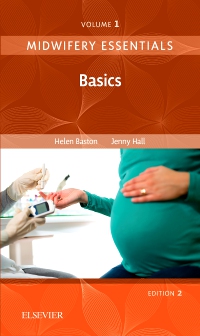
Midwifery Essentials: Basics - Elsevier eBook on VitalSource, 2nd Edition
Elsevier eBook on VitalSource

-
- Fully updated to provide a useful, friendly source of information
- Strong focus on contemporary women-centred care
- Designed to stimulate debate and reflection upon current practice, local policies and procedures
- Scenarios enable practitioners to understand the context of maternity care and explore their role in safe and effective service provision
- Helpful ‘jigsaw’ approach enables readers to explore specific topics from a variety of perspectives e.g. consent, safety and health promotion
- Explains the professional and legal issues surrounding clinical procedures
- Chapters designed to be read as a ‘standalone’ or in succession
- Emphasises the crucial role of effective communication
-
- Makes reference to the latest national and international guidelines
- Contains new scenarios to reflect recent changes in practice
- Improved layout aids retention and learning
- Fully updated throughout with the latest evidence base for clinical skills and procedures
- Embraces the principles of ‘Better Births’
-
Chapter 1 Introduction
Chapter 2 Communication
Chapter 3 Hygiene and infection control: the immobile woman
Chapter 4 Blood pressure measurement
Chapter 5 Temperature measurement
Chapter 6 Pulse and respiration
Chapter 7 Collection of specimens
Chapter 8 Urianalysis
Chapter 9 Venepuncture
Chapter 10 Neonatal blood tests
Chapter 11 Administration of medicines
Chapter 12 Administration of injections
Chapter 13 Surgical care


 as described in our
as described in our 